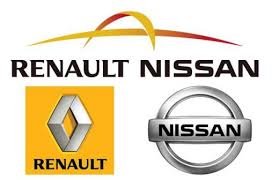Ghosn Says Renault-Nissan Can Compete Without New Partners

The two automakers saved "much more" than 3 billion euros ($3.31 billion) in 2014 from sharing costs for new vehicles and technology development, compared with 2.8 billion euros in the previous year, he said. The companies are scheduled to release final figures for the synergies, or cost savings, from their joint programs in July.
Renault and Nissan can continue to cut the costs of developing new cars and trucks, including electric vehicles, and be competitive without taking on another partner, he said. The alliance's goal is to save 4.3 billion euros by 2016.
The Renault-Nissan alliance discloses its tally of cost savings as an indicator of the advantages the two automakers gain from collaborating on the development of new vehicles and technologies such as autonomous driving systems.
The alliance, formed in 1999 when Renault rescued Nissan from collapse, resulted in a cross shareholding arrangement in which Renault owns 43.4 percent of Nissan, while the Japanese company has a 15 percent stake in the French automaker. Ghosn, 61, is CEO of both.
Nissan is now bigger than Renault, and sells about two-thirds of the 8 million vehicles sold annually by the two.
The alliance has since grown to include industrial partnerships with Daimler and Mitsubishi Motors. Daimler and Renault-Nissan now have 13 joint projects under way, Ghosn said.
Sergio Marchionne, head of Fiat Chrysler Automobiles, stirred up the auto industry recently by campaigning for more consolidation to help sustain the heavy investments needed to meet demands for cleaner, safer vehicles.
Ghosn said Renault and Nissan don't need to find new partners. "I don't have to go beyond the boundary of what I'm doing to be competitive," he told Reuters on Wednesday. "I can understand other people would have to."
Ghosn pointed to the Renault Kwid, launched in India last month at a starting price of about 4,000 euros. The low-cost underpinnings of the hatchback were designed in India and will be the basis of a new model for Nissan's Datsun brand that will launch next year, Ghosn said.
Depending on how well the vehicles do in India, Ghosn said the Kwid's architecture will be used in other markets around the world. "It's a global platform," he said.
The Kwid is the first car underpinned by the alliance's new CMF-A small car platform. Future vehicles from the platform will be built locally in markets such as Africa or South America, Ghosn said, not exported from India.
Related News


